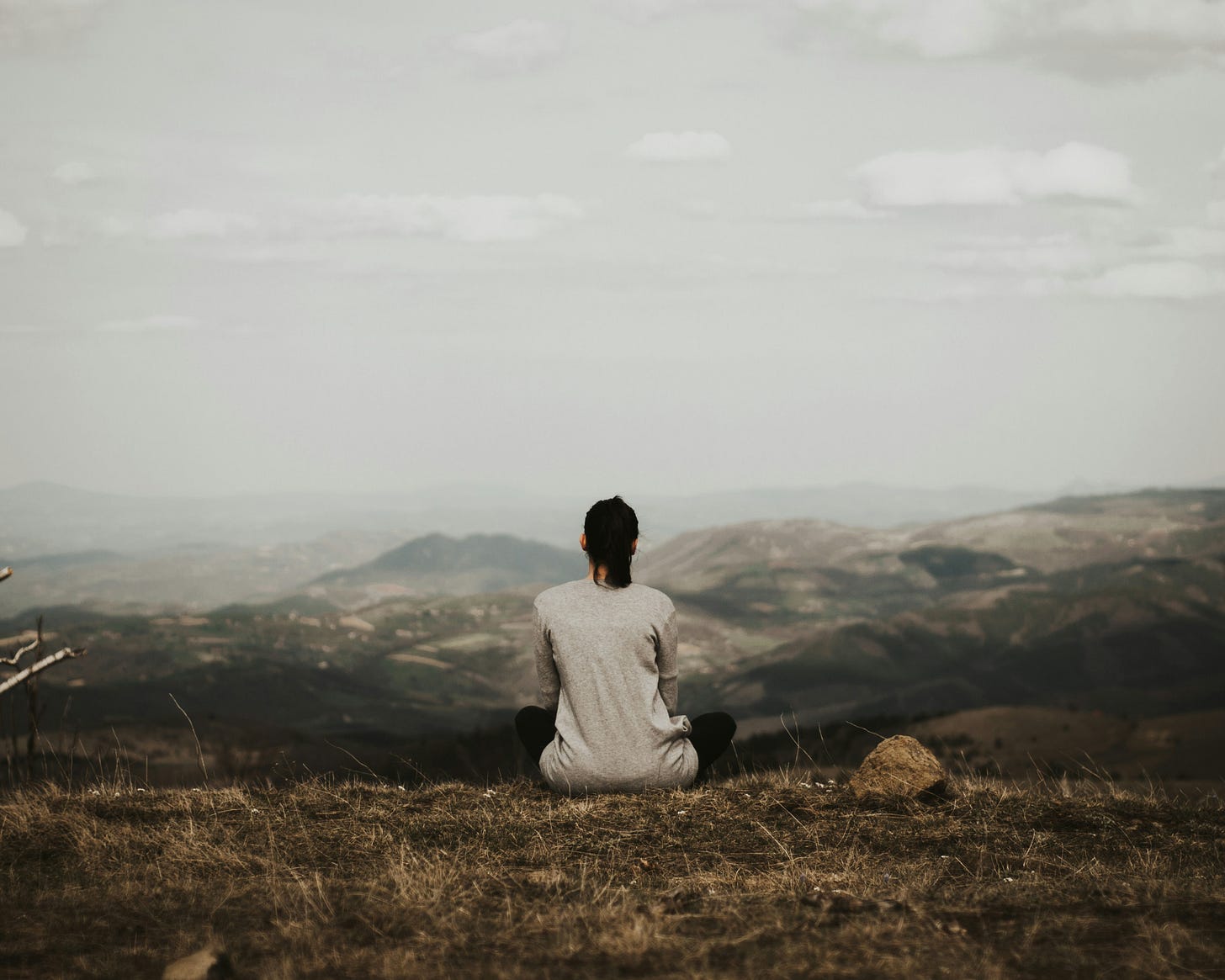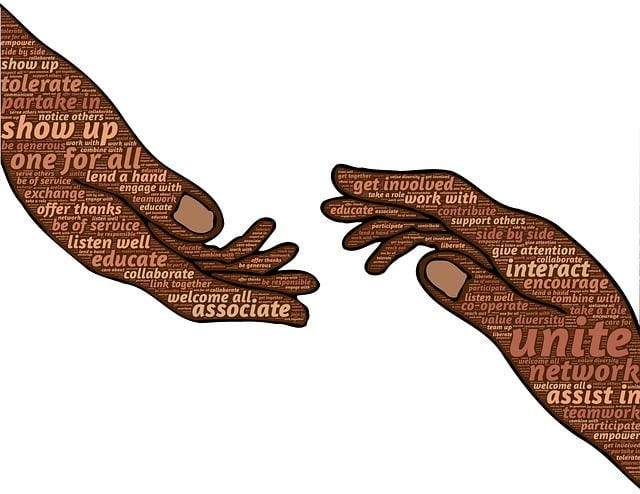There is a black-and-white photo of me as a young child, sitting on a snowbank, looking at a distant group of children playing in the snow. Years ago, while looking at this photo, my gregarious mother remarked that I had difficulty making friends as a child because I was overly shy, which caused her to worry about me. Throughout my childhood and adolescence, I was what most people labeled a loner.
As I matured, I recognized that I wasn’t overly shy, as my mother had sadly declared: I was highly introverted. I prefer solitude and am sometimes quite serious, and I live in my head more than I should. For 36 years, I was an introvert, working as an extrovert for eight hours a day. Each day, I would return home and retreat to silence: no phone calls, no TV or radio, and definitely no talking until my equilibrium was balanced. Eventually, I discovered that daily time in my garden, my hands in the dirt, was the ideal happy hour antidote for my frazzled and overstimulated nervous system.
I had many acquaintances and a few close friends, and I was a valued employee at my workplace. However, I had difficulty relating to most of my colleagues beyond professional conversations. One year, I joined a group of co-workers for a season of dinners and plays, but our conversations consisted mainly of gossip and complaints about our workplace. I didn’t join them the following year.
You might be an introvert if you were ready to go home before you left the house. ~ Criss Jami
In my younger years, I experienced bouts of loneliness that I now attribute to cultural pressure to be extroverted and collect an abundance of friends. I no longer experience loneliness; I prefer to be alone for much of what I like to do. But I am not isolated or lacking a social network.
Or am I? Our culture is abuzz with nonstop chatter about the necessity of having a social network, an array of friends and acquaintances with whom we should have regular contact and engage in daily connections. In her TED talk, Kasley Killiam, a social scientist specializing in human connection and health, recommends her 5-3-1 guideline as a daily practice: Interact with five people, strengthen bonds by reaching out to 3 people, and engage in a meaningful connection for one hour. 1
Daily? I’m sorry, but for this introvert, that sounds exhausting.

There’s Nothing Wrong With Us
Introverts are often misunderstood. Freud, an extrovert, determined that it was an unhealthy shift that rejected the outer world, and this misconception continues today. Introverts are frequently asked what’s wrong if they are silent for too long. Freud’s peer, Carl Jung, an introvert, developed the alternate theory that our temperament was physiological, a theory that current research now supports. Jung also believed that there was a continuum of extroversion and introversion and that we can adapt to circumstances by moving back and forth along the continuum.2
My ability to interact with customers, teach, give public presentations, speak up in meetings, and spend entire workdays talking with students exemplifies my adapted extroverted introvert style. How we engage in the world comes down to our reaction to levels of stimulation. When I was younger, focused on developing my career skills, parenting, and living with an extroverted partner, I managed my overstimulated responses to a world that author Susan Cain asserts “can’t stop talking” with solitude and silence.
While extroverts find energy in groups and parties, I pin myself against the wall and wait for the best opportunity to exit. (Now I don’t attend parties.) I am not shy, afraid to talk, or socially anxious. Small talk? I got nothing. But if you want to talk about the best places to camp and hike, the current wildflower bloom, the decline of biodiversity, what I am growing in my garden, good books and films, the best yarn for a knitting project, cultural concerns, and even politics, I can talk your ear off. I am interested in meeting new people and getting to know them, but that doesn’t happen much. As an older woman, when I meet new people, they often seem less interested in learning about me. Once, a woman told me she didn’t need any more friends. I was a bit stunned by that honest statement, but I understood that friendships take time and energy.
Is it possible that we become more introverted as we age?
Can We Talk a Bit?
In a 2003 study by the American Psychological Association, the authors noted the following:
“Openness showed small declines in both men and women over time, a change that indicates less interest in forming new relationships, and may infer greater interest in spending time with a small group of well-known relatives and friends as people age.” 3
Susan Cain, author of the 2013 bestseller Quiet: The Power of Introverts in a World that Can’t Stop Talking and The Quiet Life on Substack, suggests that our personalities don’t change as we age, but certain aspects and behaviors may become muted—a balancing process called intrinsic maturation.
“High levels of extroversion probably help with mating, which is why most of us are at our most sociable during our teenage and young adult years. But when it comes to keeping marriages stable and raising children, having a restless desire to hit every party in town may be less useful than the urge to stay home and love the one you’re with. Also, a certain degree of introspection may help us age with equanimity.” 4
I want to be clear: I am not dismissing the reality that many older people feel lonely and isolated. For more than two decades, my gregarious mom joined a group of friends for lunch a couple of times a month, but as they aged and friends began to die, her only social network disappeared.
Losing relationships is part of the aging process, and to avoid isolation as we age, we need to engage with others, meet new people, and embrace the importance of a social network. This is more challenging for those of us who are naturally introverted. Social media has enabled us to have a collection of “friends,” but research supports the importance of in-person connections for maintaining a supportive social network.
Multiple research studies demonstrate that maintaining several strong friendships can benefit us emotionally and physically.
“Having meaningful social connections significantly diminishes the risks of numerous physical and mental ailments. Depression, high blood pressure, unhealthy weight gain, dementia—these aren't just isolated medical conditions; they're tied intimately to the quality and strength of your social bonds. If you truly wish to fortify your health—both mental and physical—you must prioritize your relationships with others.”5
Loneliness does not come from having no people around you, but from being unable to communicate the things that seem important to you.
~ Carl Jung
https://www.ted.com/talks/kasley_killam_why_social_health_is_key_to_happiness_and_longevity
The Introvert Advantage by Marti Olsen Laney
https://www.apa.org/monitor/julaug03/personality
Thank you for being here. All of my posts are free, but if you’d like to support my work, you can do so by:
Liking and restacking this post so others are encouraged to read it.
Share this post via email or on social media.
Taking out a paid subscription to this Substack.
Are you becoming more introverted as you age? How do you maintain your social bonds?






Always enjoy your writing as a former colleague and fellow introvert. Amazing how many interests we have in common.
I think as I age I’m not more introverted, but I feel less obligated to respond to social events that are unfulfilling. Finding people who share my passions, even if those people are few in number, is infinitely more fulfilling than a dreaded party!
I'm with you about needing a lot of alone time, Sue. And not enjoying group socializing, whether parties or conferences or political rallies, for that matter. But I do still give talks and teach workshops from time to time. And I enjoy small group socializing (five or six people max). So I very much appreciate your thoughts on keeping that balance between the solitude that calms our systems and maintaining a community as we age. I'm not sure exactly where the line is for me, but I do cherish being able to live alone and have lots of time to practice my terraphilia on long solitary walks, planting native plants in my too-lawned yard, and reading and thinking. Solitude is nourishing; group socializing not so much unless it's a really small group. I wonder, too, where socializing virtually fits in the picture of healthy aging. I text or talk on the phone with friends and family multiple times every day, and I know those connections are nurturing, if perhaps not as much as face-to-face ones are. At any rate, it's an important balance to keep track of, as you make so clear in this post. Thank you!